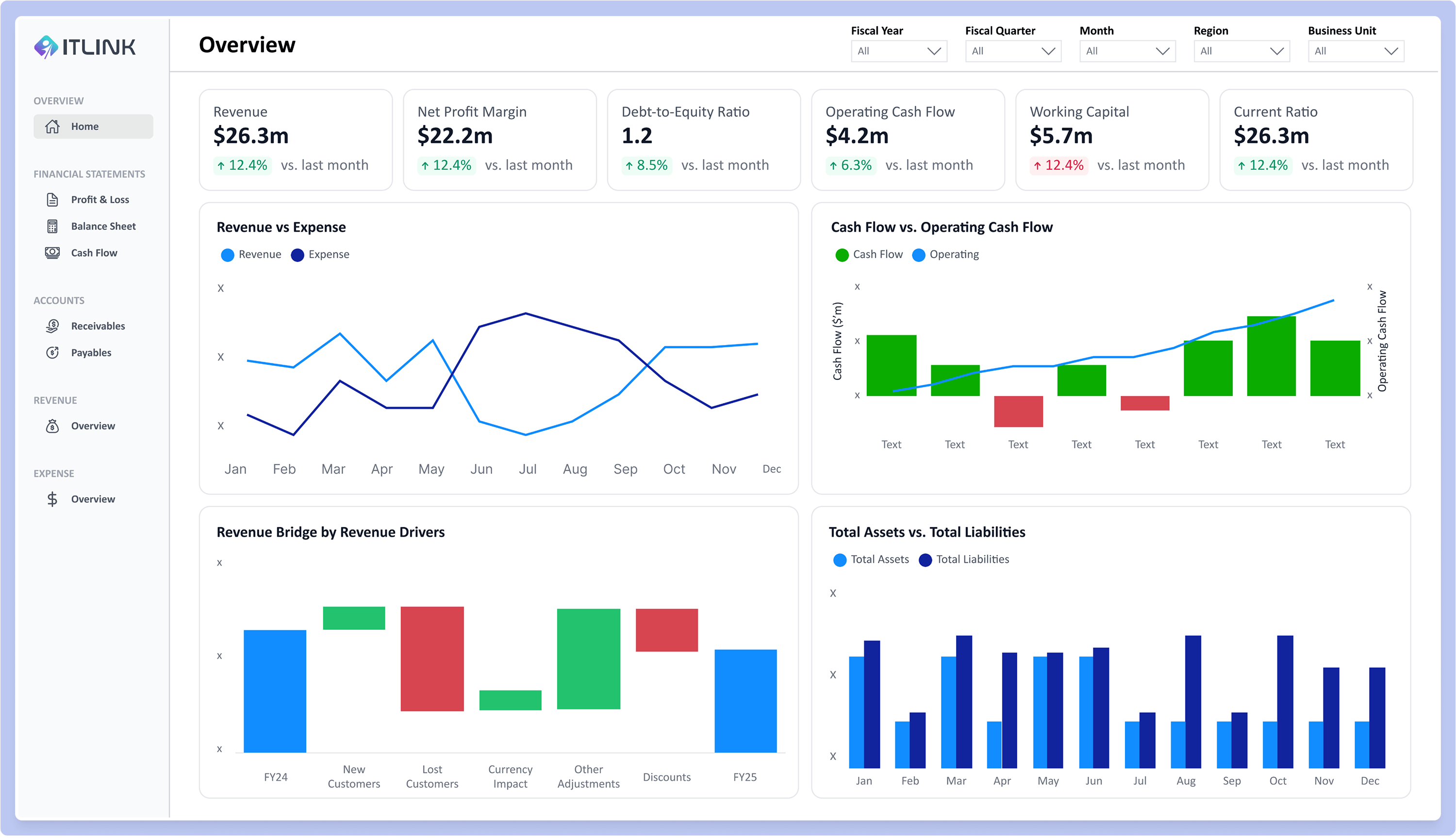
IBM Planning Analytics & Power BI Consulting in Singapore
Stop Wrestling with Spreadsheets and Manual Reports
Where do you need help with your reporting?

.png)
Why Reporting, Budgeting and Forecasting Feels So Much Harder Than It Should Be
Here’s why you’re still stuck in end-month and prolonged budgeting cycle chaos.
Spending too many hours on manual spreadsheets?
Not confident your numbers are correct?
Reporting time to
unpredictable or too high?
30 Years of Trust since 1995
Your Expert Guide to Clearer Reporting, Budgeting and Forecasting in Singapore
Fewer layers. Faster answers. Real results.








At ITLink, we understand the pressures Singapore Finance & IT teams face.
We know you’re tired of spending more time managing consultants than solving your real challenges.
That’s why at ITLink, you work directly with experienced specialists who understand your business goals - not layers of intermediaries. We focus 100% on solving your reporting challenges efficiently and effectively.
Your Simple Roadmap to Fast, Accurate Reports

Step 1:
Let’s Talk About Your Reporting, Budgeting and Forecasting Challenges
Schedule a quick, no-obligation chat to discuss your specific situation and goals.

Step 2:
Get Your Custom Reporting Plan
We’ll outline a clear solution - either a focused project or the right ongoing support plan - tailored to your needs and budget.

Step 3:
Enjoy Reliable, Stress-Free Reporting, Budgeting and Forecasting
With our solution in place, you get trustworthy numbers on time - freeing you and your team to focus on driving growth, not fixing spreadsheets.


.png)
.png)
Trusted by Singapore Businesses to Deliver Reporting Results That Matter
Discover our most recent content, including industry news, expert insights, and tips and tricks to help you improve your website and marketing campaigns.

“60% Faster Reporting”
.png)
“Before ITLink, our finance team was spending days chasing manual spreadsheet errors at month-end. Now, our reports are automated, accurate, and ready within hours. We’ve reduced reporting turnaround by more than half—and our team finally has time to focus on analysis instead of cleanup.”
Vun Yaw
Finance Team Lead


“Accurate Forecasting Received”

“Forecasting used to feel like guesswork. ITLink helped us unify TM1 with Power BI, giving our leadership team confidence in the numbers for the first time. We’re now able to forecast with accuracy and back our decisions with real-time insights.”
Joshua Wong
Group Financial Controller

.png)
Ready to Stop Wrestling Spreadsheets and Get Reports You Can Trust?
Helping Singapore businesses gain reporting clarity - faster, with confidence.
Join 100+ Singapore businesses replacing spreadsheets with reporting clarity.
.png)












.png)

















